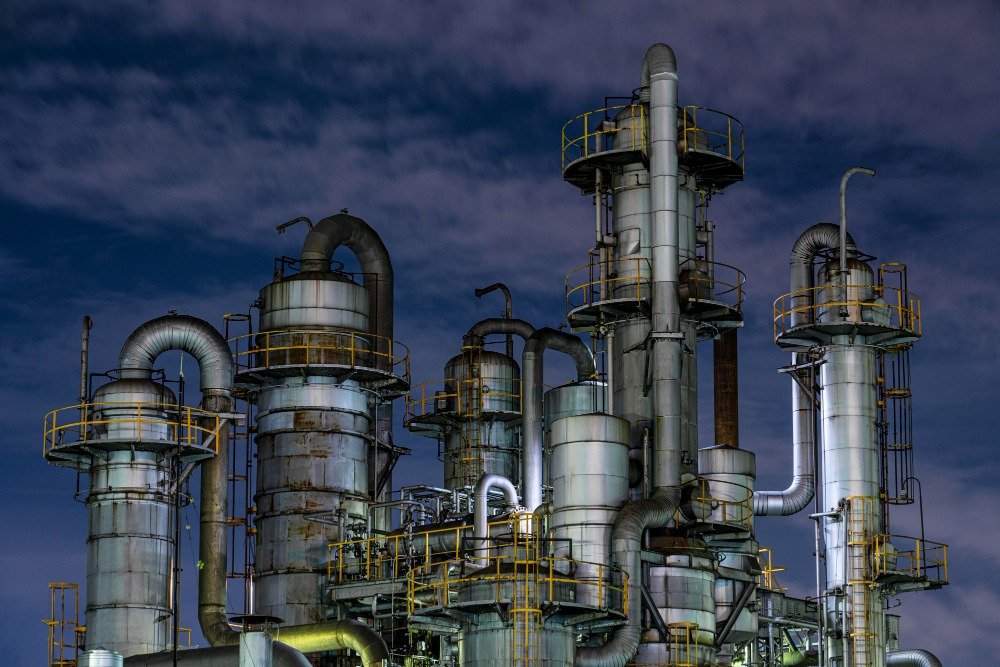Petroleum products are integral to daily life and the global economy. Derived from crude oil, these products fuel vehicles, power industries, and play a critical role in manufacturing and even the production of consumer goods. With a wide range of applications across various sectors, petroleum products are essential to the modern world. In this blog, we’ll explore the different types of petroleum products, their uses, and their importance in today’s industries.
What Are Petroleum Products?
Petroleum products are substances derived from crude oil after it undergoes a refining process. Crude oil is a naturally occurring liquid found beneath the Earth’s surface, and when refined, it can be transformed into numerous products. These products fall into various categories, each serving a unique function.
The refining process involves separating the components of crude oil based on their boiling points, which allows for the creation of many different products with varying uses. These include fuels, lubricants, and chemicals, all of which are essential in modern industry.
1. Fuels Derived from Petroleum
Fuels are perhaps the most well-known and widely used petroleum products. These products are primarily used for transportation, electricity generation, and heating.
-
Gasoline (Petrol):
Gasoline is one of the most commonly used fuels for internal combustion engines, powering vehicles like cars, motorcycles, and lawnmowers. It is refined to be highly combustible, making it an efficient source of energy for transportation. -
Diesel:
Diesel is another widely used fuel that powers trucks, buses, and large machinery. It is denser than gasoline, providing more energy per unit volume, which makes it ideal for heavy-duty vehicles and industrial applications. Diesel fuel is known for its higher energy density, offering better fuel efficiency. -
Jet Fuel:
Aviation fuel or jet fuel is used to power aircraft. It is a specialized form of fuel designed to perform at high altitudes and during the unique conditions experienced by planes. Jet A and Jet A-1 are two common types used in commercial aviation, providing the necessary energy for flight. -
Heating Oil:
Heating oil, also known as fuel oil, is used for heating buildings, homes, and industrial spaces. It is commonly utilized in regions that do not have access to natural gas or other heating alternatives. -
Liquefied Petroleum Gas (LPG):
LPG is a mixture of propane and butane and is used in a variety of applications, from household heating and cooking to powering vehicles (LPG-powered cars). It is stored in liquid form and can be easily transported. -
Best for: Powering vehicles, generating electricity, heating homes, and fueling industrial equipment.
2. Lubricants and Oils
Lubricants are another critical category of petroleum products. These substances reduce friction and wear between moving parts in engines, machinery, and equipment. Without proper lubrication, many mechanical systems would break down or become less efficient.
-
Motor Oil:
Motor oil is essential for internal combustion engines, ensuring smooth operation by reducing friction between engine components. It also helps to cool the engine, preventing overheating, and keeps the engine clean by preventing sludge buildup. -
Industrial Lubricants:
These lubricants are used in machinery across manufacturing plants, refineries, and construction sites. They include oils, greases, and sprays that keep gears, bearings, and other mechanical parts operating smoothly. -
Grease:
Grease is a thicker lubricant that is used in applications where liquid oils would be insufficient, such as in heavy machinery or equipment exposed to high pressure and extreme temperatures. -
Transmission Fluid:
Transmission fluid is used in cars, trucks, and other vehicles to ensure smooth shifting and proper operation of the transmission system. -
Best for: Reducing friction in engines, machinery, and industrial equipment, ensuring longevity and efficiency.
3. Petrochemicals
Petrochemicals are chemicals derived from petroleum that serve as raw materials for a wide range of industries, including plastics, pharmaceuticals, fertilizers, and more.
-
Plastics:
One of the most significant and visible uses of petroleum products is the creation of plastics. Petrochemical derivatives such as ethylene, propylene, and butadiene are polymerized to produce a wide variety of plastic products, including packaging, containers, automotive parts, and household items. -
Synthetic Rubber:
Synthetic rubber, used in tires and a variety of industrial applications, is made from petrochemical derivatives like styrene and butadiene. It offers advantages over natural rubber in terms of durability and resistance to wear and tear. -
Fertilizers:
Petroleum-based chemicals like ammonia, produced from natural gas, are key components in fertilizers that help enhance agricultural productivity. These fertilizers are essential in meeting global food demand. -
Cosmetics and Pharmaceuticals:
Many products in the cosmetics and pharmaceutical industries are derived from petroleum, such as mineral oils, paraffins, and other hydrocarbon-based ingredients. These products are used in everything from skincare creams to medicinal ointments. -
Best for: Manufacturing plastics, rubber, fertilizers, chemicals, and products used in consumer goods and healthcare.
4. Asphalt and Road Products
Petroleum is also a key component in creating materials used for infrastructure, particularly in road construction.
-
Asphalt:
Asphalt, a semi-solid form of petroleum, is used for paving roads, highways, and parking lots. It is known for its durability, weather resistance, and flexibility, making it an ideal material for constructing road surfaces. Asphalt is produced by distilling crude oil and separating the heavier fractions used in road paving. -
Tar:
Similar to asphalt, tar is another substance derived from petroleum and is used in road construction. However, tar is typically less common in modern road construction due to the increased use of asphalt. -
Best for: Building and maintaining roads, highways, and other infrastructure projects.
5. Wax and Paraffin
Petroleum is also used to produce various waxes and paraffins, which are found in a wide array of products:
-
Paraffin Wax:
Paraffin wax is widely used in candles, cosmetics, and as a coating for fruits and vegetables. It’s also used in electrical insulation and as a lubricant in various industrial applications. -
Microcrystalline Wax:
A type of wax derived from crude oil, microcrystalline wax is used in products such as adhesives, rubber, and cosmetics due to its unique properties, including its flexibility and ability to hold other substances together. -
Best for: Manufacturing candles, coatings, adhesives, and cosmetics.
Importance of Petroleum Products in Modern Industry
Petroleum products are vital to the global economy and essential for powering industries, transportation, and consumer goods production. The refining of crude oil allows for the creation of a variety of products that support everything from agriculture and manufacturing to healthcare and energy production. These products are deeply integrated into everyday life, making petroleum an irreplaceable resource for modern society.
Despite the growing push for renewable energy sources, petroleum products continue to play a pivotal role in powering and sustaining the world’s infrastructure. This makes them crucial to both developing and developed nations, as they enable the continued functioning of industries, transportation, and manufacturing at scale.
Conclusion
From fuels and lubricants to petrochemicals and asphalt, petroleum products are essential to modern life and industry. These products not only fuel our cars and machines but also create materials that shape our homes, workplaces, and the broader economy. While there are growing efforts to reduce reliance on fossil fuels, the diverse applications of petroleum will likely continue to have a significant role in global industries for years to come. As we move toward a more sustainable future, finding innovative ways to reduce environmental impact while maintaining the benefits of petroleum products will be key to balancing progress with responsibility.













































